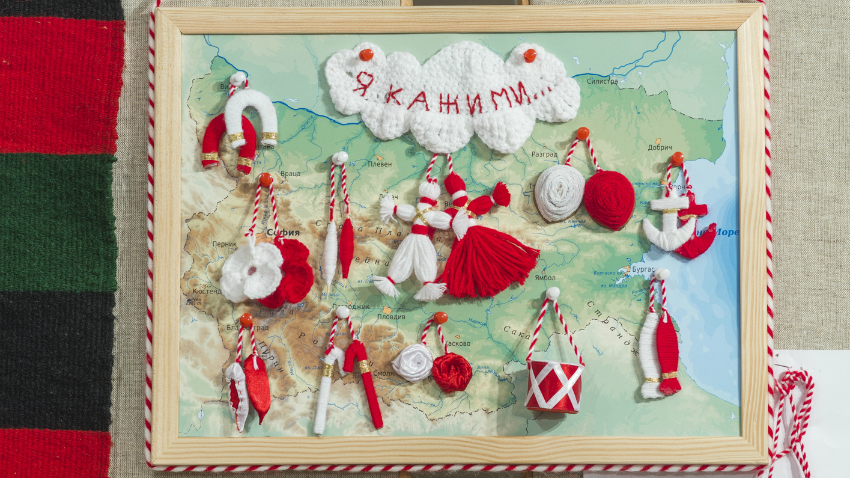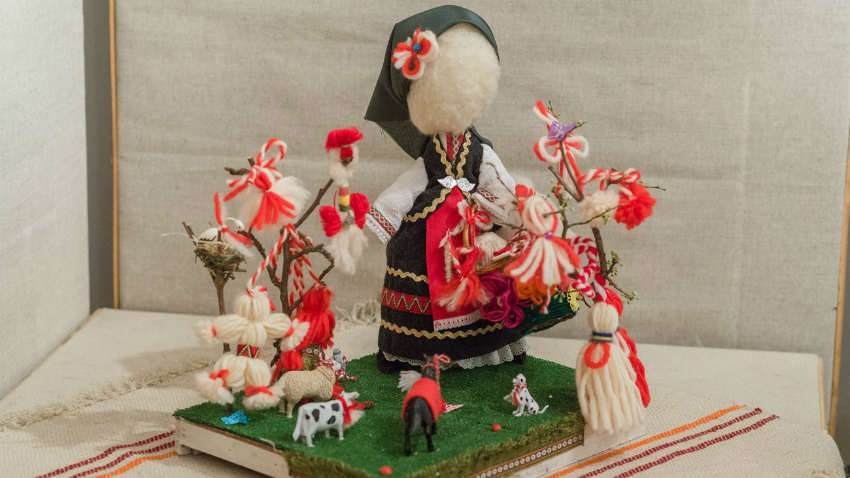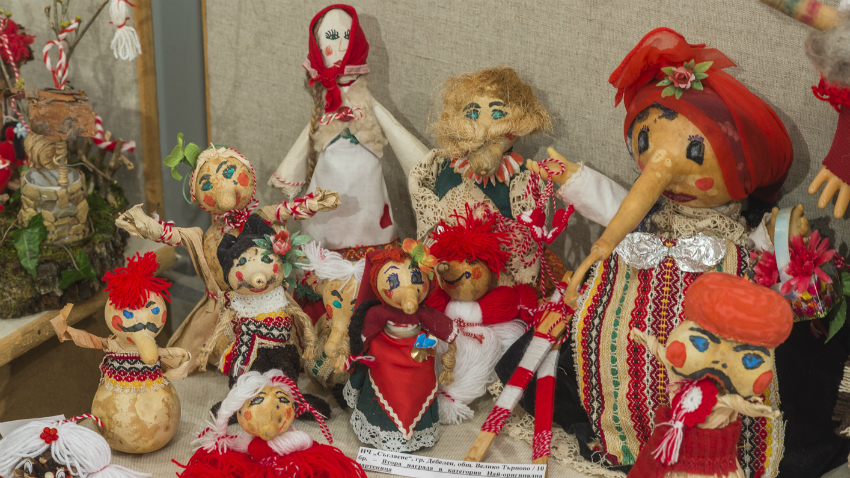Welcoming the spring is an act of hope and optimism for many people across the globe and in Bulgaria it goes with an ancient ritual. On 1 March Bulgarians give to friends and family red and white tassels (martenitsa). The classical martenitsa may also sport a coin, blue beads or colorful woolen threads, but the red and white colors are mandatory. In the past this adornment was also an amulet protecting humans from the supernatural forces of evil. Today it is a symbol of the upcoming spring and is worn to stand for health and wellbeing. A similar ritual is seen in Albania, Northern Greece, Southern Romania, Moldova, Macedonia and Eastern Serbia.

The architectural and ethnographic complex Etara in Gabrovo, Central Bulgaria, has organized a national contest for making martenitsas in three categories: for a thematic collection, for the most authentic and for the most creative martenitsa.
Blagovesta Bozhinova, a museum pedagogue in the center, says interest in the contest is getting stronger every year. This year it has 90 entrants with 120 martenitsas.
“Entrants come from various towns - Tutrakan, Varna, Sofia, Debelets, Dryanovo, Tarnovo and the region. The red and white martenitsas will be on show in our exhibition venue this month. We have many participants who are loyal to tradition of making the ancient amulet. However, we have also noticed sings of innovation and a few original ideas. For the first time this year I and my colleagues saw a very nice cake made to resemble a martenitsa. Our participants are very creative, but they often reconcile their own original ideas with a few quite traditional elements such as the distaff and various gourds. It could be that the category for a thematic collection inspires them to improvise”.

Participants of different age have joined the competition in Etara. Blagovesta says more about them:
“The children from the nursery school in Burgas have made one of our largest collections entitled Granny Martha in Gabrovo region. Granny Martha is the name of the month of March and of the whole martenitsa ritual.The kids have sent to us a model of a meadow with storks, tassels and dolls. An elderly woman from the village of Nova Cherna in the municipality of Tutrakan has knitted 41 unique items - from doll clothes to original spring elements. She represents Vasil Yordanov 1942 cultural center in the village. We have worked very well with this center in the recent years. To recap, contests are a good way to keep people's interest alive and we are happy that the exhibition is so successful”.

After the first appearance of migratory birds - storks and swallows martenitsas are removed and tied to a tree that has come to a leaf. This marks an important transition from winter to spring, from the cold months to the new farming season. Wearing martenitsa, this widespread and sustainable practice in Bulgarian folk culture, is associated with the belief in the magical powers of the red color and the red thread that have the ability to banish evil spirits and disease.
English Daniela Konstantinova
Photos: courtesy of Blagovesta Bozhanova, Etura Ethnographic Museum
Two graduates of the Bulgarian School "Saints Cyril and Methodius" in Jordan presented their achievements at an event at their school "Hadi al Muhammadi" in Amman. The photo, published on the Bulgarian school's Facebook page , shows third graders..
Radmila Sekerinska from North Macedonia appointed NATO Deputy Secretary General NATO Secretary General Mark Rutte has appointed Radmila Sekerinska from North Macedonia as the next NATO Deputy Secretary General. “I am happy to announce..
The traditional Bulgarian Christmas picnic, organized by the Bulgarian Cultural and Social Association "Rodina - Sydney" and the Bulgarian School "Dr. Petar Beron", will take place on December 8 , 2024 in St. Leonards Park in Sydney. "We have..
According to the Annual Report on the Health Status of Bulgarian Citizens for 2023, t he main cause of death in Bulgaria is diseases of the..
At the Bulgarian Embassy in London, Prof. Bettany Hughes presented excerpts from the new BBC series - Wonders of Bulgaria. Prof. Bettany..

+359 2 9336 661
